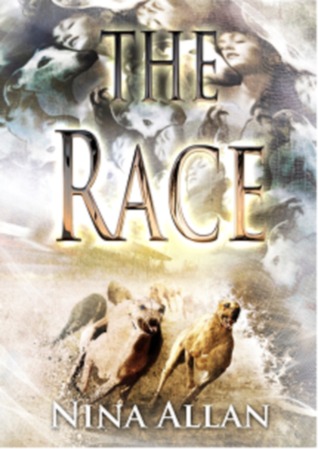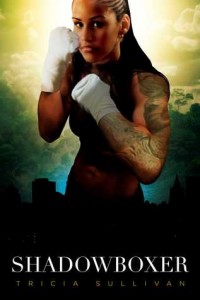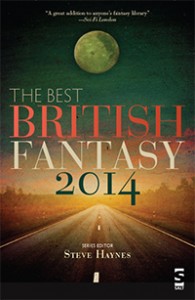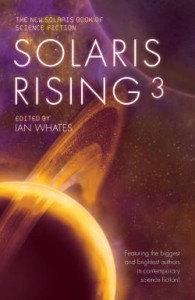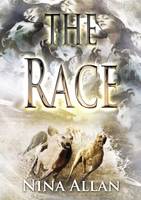When you think of all the ways that a person can die, the powerlessness we feel in the face of cancer, or a violent earthquake or even simple old age, it would seem to be the ultimate expression of human madness to set about inventing new ways to kill one another.
When you think even of a common housefly, the jewelled intricacy of its workings, the impossibility for a human scientist of ever, ever being able to construct something one-tenth as fit for purpose, one-hundredth as beautiful…
It is both incredibly easy to kill a person, and nightmarishly difficult. Thousands may be eliminated in less than a second, reduced soundlessly to dust and blown away on the wind. Yet the same blast will leave others maimed and monstrous, injured beyond recovery with days of agonised suffering still ahead.
I think of these things, that I have seen, and I feel tired. It is both a miracle and an affront that my life can now proceed as before, in spite of all this, that I can enjoy the privilege of recovery. I helped one person. This does not feel like nearly enough to justify my continued survival, yet I am glad to be alive.
Somewhere inside myself I carry the delusion that it will help, to write things down, that it will justify my actions, even.
The truth is that no one cares if I was selfish or not, or brave or not. They – you – are all too concerned with your own place in the scheme of things, with your righteous opinions and clever predictions and pathetic, self-serving generalisations.
If I could only believe that it will not happen again, I would give up my anger. It will happen again, though. It is only the abattoir workers who don’t eat meat, have you noticed that? Those who were there.
The rest of us, safe on the outside, we make tutting noises, and resolutions, but we keep on buying our lamb’s liver and our salami.
I first heard a recording by Agafya Doers when I was eight years old, the first concerto by Medtner, recorded when Doers was still a young woman, studying at the Moscow Conservatoire. I had been taking piano lessons for two years already, but it was that record by Doers that made me begin to imagine my future as a musician.
The Medtner is a crazed work, really, one of those overblown Romantic concertos written in the first decades of the twentieth century that possess the gladiatorial spirit of similar nineteenth century works – Tchaikovsky, Saint Saens – but none of their certainties. Trenchantly opposed to modernism, they still cannot avoid the slide into harmonic breakdown and psychological disarray.
There were people who described Medtner’s work as demonic. His first concerto is a towering white elephant, a cacophony of monster chords and bombast that manages to fuse the sensibilities of a royalist conservative with a bomb-throwing revolutionary. It is a tiresome thing, all insistence and no intellect. Its worked-out themes bombastically lament the passing of the age that fought to retain slavery and culminated in the seething battlefields of the First World War. It is a work that ought only to be listened to in the concert hall, where it can at least be offered the elbow room sufficient to offset its slovenly table manners.
Doers’s recording, like any truly great artistic endeavour, slams the door in the face of such arguments, sends them off with a swear word and a thick ear. It is so thrilling that, listening to it, you cannot escape the sneaking feeling that you are engaged in an illicit activity. The blocks of chords, carved from granite, are delivered with such authority that it makes you feel certain that this is the finest music that has yet been written.
As an eight-year-old child, Agafya Doers’s performance – it was my father’s record, bought on a whim (it was my mother who had insisted that I should learn the piano) – impacted itself upon me like a coded message from what I hoped might be my own future. Staring at the black-and-white photograph of Doers on the reverse side of the record sleeve, I came the closest I’d yet come to falling in love.
The immediate effect of this was that I began to take my piano practice more seriously. I followed every twist and turn of Doers’s career – her victory in the Tchaikovsky competition, her friendship with the Italian composer Odette Hirschel, the falsified reports of her defection in 1958 – and when she came to perform in Leipzig in 1959 I badgered my mother senseless until she agreed that we should go. It was an expensive business – as well as the cost of the tickets, we would have to stay in a hotel overnight – but I had never been the kind of child to routinely make extravagant requests, and what with my teachers confirming that it would be ‘a good experience’ for me, my mother must have thought it worth the outlay.
Doers wasn’t playing the Medtner. (“That untidy thing!” she said to me, two years later. We knew each other better by then. “I can’t remember now why I decided to learn it.”) If you look up her CV, you’ll see that she never played that concerto in public again after 1955. She was playing a new work, a sprawling concertante by Pavel Zaitsky, originally written for Igor Aitmatov but enthusiastically championed by Doers from the time of its Moscow premiere in 1956. I’d never heard it before, but I’d read the notices. I had saved up for a copy of the expensive sheet music, even though the concerto was well beyond my abilities at that time.
My most cherished hope was that Doers would sign it for me, which she did.
Two years later, I was awarded a scholarship to go and study with her, as one of the six privately selected students she took on each year.
‘I know it will be inconvenient’, she wrote to me, three months before I was due to take up my scholarship. ‘But we will have to be in Voronezh this year because of my grandmother.’ From the beginning of our acquaintance she always wrote to me by hand, on the same poor quality ruled notepaper, in her awful German, in the close, crabbed handwriting that I could barely read at first but that by the time I actually travelled to Voronezh had become as familiar to me as my own.
I remember the almost unearthly thrill of that first letter, how I hardly dared answer it for fear of sounding foolish. Doers was normally based in Kiev, but her grandmother had fallen ill, and Doers had recently been forced to return there to look after her. ‘She more or less brought me up,’ she wrote to me. She used half a page of the letter to describe the state her grandmother’s flat had been in when she arrived in the city, then another half page bemoaning the lack of a decent piano tuner, then finished off with a close and perfect analysis of my taped recording of the Chopin third sonata which the Academy had sent her as a demo tape.
I still have no idea if she really remembered our first, very brief encounter in the backstage area of the Staatshalle in Leipzig, but she knew my Chopin, note for note, just as she always remembered every detail of our lessons, perfectly and in sequence.
Doers’s grandmother died two weeks before I arrived in Voronezh. Typically, Doers refused to consider moving back to Kiev until the following summer.
‘Everything’s been arranged,’ she wrote to me. ‘I can’t possibly uproot myself now, not at this short notice.’
More than anything, Doers hated any disruption to her routine. She used to say that practical disruptions left scars on her mind.
She begrudged any and every moment spent thinking about anything that wasn’t music. Voronezh was inconvenient, but changing her plans would be even more disruptive, so she decided to stay.
I didn’t mind. Everyone said Voronezh was the back of beyond, but having lived my whole life in a small rural village in Eastern Germany that kind of obscurity was something I was used to.
I would be studying with Agafya Doers. The idea of being isolated, cut off from everything except music, secretly appealed to me.
If her grandmother had died three months earlier, Doers would have remained in Kiev, and I would have been a different person.
